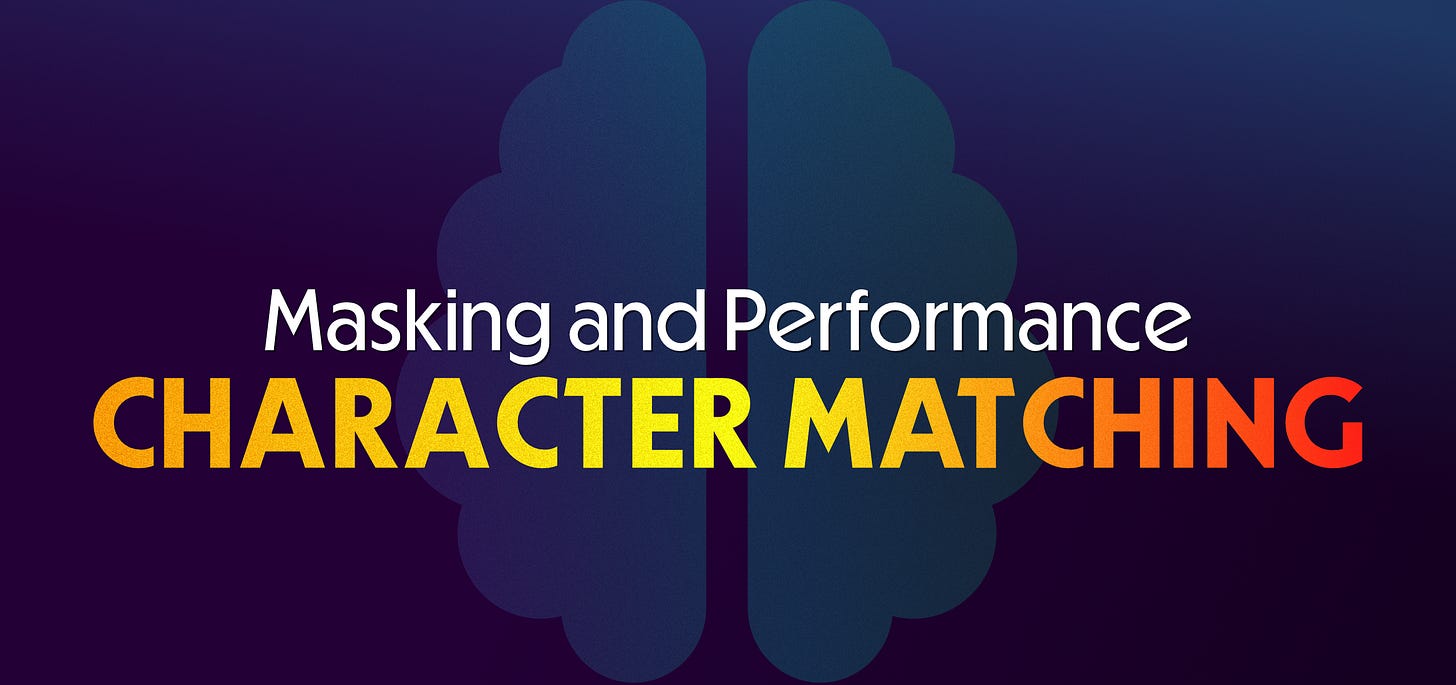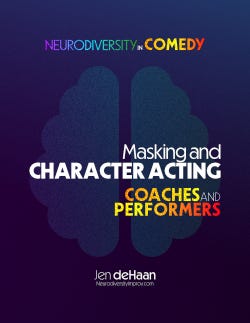Masking and Performance: Character Matching
Are you a neurodivergent who masks? What are some of the common ways this influences your acting, improvising, and performance?
Podcast episode 6 was on doing peas in a pod scenes in improv. This is when you match the point of view, physical, or vocal elements of the person you are doing a scene with.
Masking, a common trait of neurodivergent humans, involves mimicking others in a similar manner to this. You might try to fit in socially, for example, if you match the person you are having a conversation with.
Most humans change some aspects of their personality when they are in different settings. However, you might find your neurodivergent mindset elevates this, and impacts your life in different ways.
So how does masking impact acting in scenes? Read the following article to find out more.
Masking and Character Acting Reference Guide
This article has now been revised and improved, and is available for download. It includes a reference on masking in character acting, and how to approach:
Character matching and “peas in a pod” scenes
Approaching grounded and “voice of reason” characters
Find this complete reference for download here:
All of my other articles are being updated, revised, and otherwise “cleaned up.”
Find additional articles for download here.
Featured image: Photo by Pierre Bamin on Unsplash






